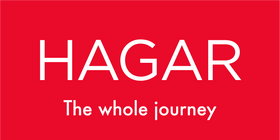Overcoming COVID-19

Overcoming COVID-19
The world we know now will never be the same again. No one could have foretold or prepared for the virus outbreak that would go on to cripple the global economy and threaten to undo decades of social development progress.
Wearing a mask, maintaining safe distancing, and keeping records of our whereabouts – these are some of the changes in our lives. Some have lost their jobs, or are unable to find employment; businesses are forced to rethink their processing channels and the way they carry out their operations.
Yet the COVID-19 is disproportionately affecting the vulnerable and marginalised, exacerbating their risks and impeding access to critical services such as healthcare, employment, social security and help services.

A. Impact On Livelihoods
Former beneficiaries who have achieved independence now require assistance because their livelihoods have been disrupted. Derailed because of the COVID-19 pandemic and resulting economic crisis, their livelihoods have been disrupted and they are struggling with basic needs requiring immediate attention.
Garment production and tourism in Cambodia are the largest job sectors. The high volumes of returning Cambodian nationals means more workers are competing for shrinking job opportunities as the sectors have been severely affected by COVID-19.
The pandemic has exposed socioeconomic inequalities in Singapore when 95% of Singapore’s 58,000 COVID-19 cases were contracted by low-wage migrants as a result of poor housing conditions. For several months following the country’s lockdown, workers were without income and jobs, and were unable to send money back to their waiting families.
Retail, transport, tourism and manufacturing sectors in Vietnam have sustained heavy damages. Declines in demand and grounding of air carriers in view of border closures have gravely affected the demand for production in wood processing, garment and textiles factories.
In the impoverished country of Afghanistan, the World Bank estimates an additional 10% of people are at risk of living in poverty as incomes decline.
B. Domestic Challenges
As schools closed, the move to online learning highlighted gaps in technological infrastructure and equipment. As families struggled to find work, kids were pulled out of school to support income generating activities.
With increased economic pressure on households, women face greater risk of domestic violence, and in some instances, are forced to take on jobs that puts them at risk.
HAGAR COVID-19 Response
Since the outbreak at the beginning of the year, HAGAR has been responding to the emerging needs of clients and former beneficiaries as the crisis swept across the world and engulfed marginalised communities.

The pandemic has shown that in rich and poor countries alike, a health emergency can push people into bankruptcy or poverty.
Despite the chaos brought about by the pandemic, there stands an opportunity to build a more sustainable and resilient future in which all people can thrive. COVID-19 has accelerated powerful existing trends, such as digitisation and structural reforms to land, labour, capital markets, and halted other behaviours that were experiencing tremendous momentum such as globalisation.
The world will not be able to revert to the “pre-COVID state”, at least not in the next 2-3 years according to economists’ speculations. However, we can take this as an opportunity to restart and to start well. By recognising the challenges that confront us, internalising the lessons of the pandemic and deploying the tools and technologies at hand, we can realign our focus to help the marginalised and most vulnerable, empowering them to be in a much better stead to face the next crisis in the future.
HAGAR remains steadfast in our commitment to do whatever it takes to empower survivors and equip them with capacities and skills to lead independent lives. Thank you for partnering us in this mission to relieve the oppressed and lift up the vulnerable.
